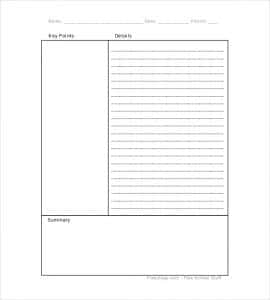Getting the most out of lectures.
Starting university can be both an exciting and daunting time. There are lots of new things to get to grips with and you will most likely be introduced to a new way of learning. You will probably have a lecture on a particular topic followed by a seminar with a smaller group of your peers. But fear not if this is completely new to you! The following tips will help you to get the most out of your new found learning experience.
- Preparation is key!
If your lecturer puts the slides on Canvas before the lecture it is useful to look over them so you know what to expect. You could download them to your laptop so you can add notes. Or print them out so you can follow them and write notes during the lecture.
- Make some notes
Find a note taking technique which works for you; you may need to try out a few different strategies. One example is the Cornell Method:

Divide the page into three sections.
During the lecture make notes in the right hand column, these should be the main points. Use bullet points, mind maps, pictures and diagrams. Also use your own words.
Review your notes as soon as possible after the lecture. Pull out the main ideas, key points, dates and people. Write these in the left hand column.
Finally write a summary of the main ideas in the bottom section.
You may find it useful to record the lecture. There are lots of free recording apps you could download:
SuperNote (iOS)- helps you to create notes and make voice recordings during lectures. The notes are colour coded so you can easily find them. You can also take photos while recording or playing and add new recording sections to an existing recording.
Evernote (Android and iOS)- you can use this app to write, capture and record information from lectures.
Lecture Recorder (Android)- this enables you to record audio and take notes at the same time. The notes are saved along with the audio file.
This means you can easily go back to any parts of the lecture you need to review at a later date.
- Read, read, read!
You may find that your lecturer will set reading after a lecture in preparation for the seminar. You should make time to read this as chances are it will inform the discussion at the seminar. You don’t want to be the person sitting there who hasn’t got a clue what everyone else is talking about!
- Try to take part in seminars.
Seminars can be really nerve wracking but taking part and discussing topics will help you to understand them. This will be helpful when you have to write an assignment on the subject!
- Organise your notes.
Find a way to organise your notes so you can easily find information later on. Give each lecture a clear title and number the pages.
Want to know more?
You can book a one-to-one appointment with a Study Skills Adviser, just fill out the online form: One-to-one advice.
Or you can attend one of our drop-in sessions: Tuesday 1pm-4pm, Study Skills Zone, Murray Library or Thursday 10-1pm, St. Peters Library.


